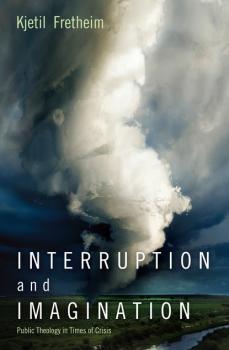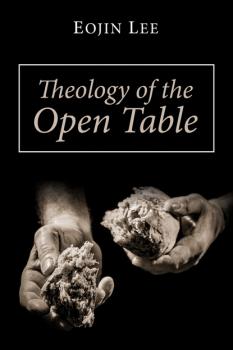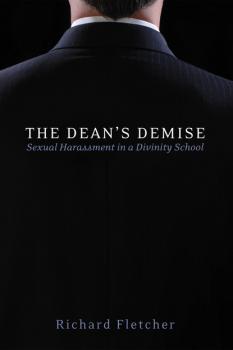MREADZ.COM - много разных книг на любой вкус
Скачивание или чтение онлайн электронных книг.I Am Who I Am
The mystery of God has fascinated people of all generations. Based on what has been revealed, people have tried to define, describe, and depict him in the way they deemed fit. But he has proved himself to be bigger than all human classifications. He continues to reveal himself to us in ways that we sometimes least expect. He becomes so small that we can understand and experience him according to who we are and what capacity we have. But he is so big that he is beyond all our imaginations and fantasies.
Author Binu Edathumparambil considers God as an inevitable component in the triangular model of life that he suggests for our lives. A healthy and happy life, according to Edathumparambil, is one that is lived in communion with God and others. This book specifically focuses on the mystery of God and his place in the triangular model of life. It is about what our forefathers experienced in the past and what we experience today. It is also about how our understandings and experiences of God shape our lives as individuals and communities.
Bible Stories for Strong Stomachs
Intriguing and eye-opening interpretations of the most scandalous Bible stories that are puzzling and even shocking, maybe not even worthy of being in the Bible. A serious and sometimes whimsical taking of readers into the most awkward and even repulsive biblical narratives to find answers to the difficult questions facing believers today. Here is an outstanding resource for young adults, Sunday school classes, and quest groups that will provoke real conversations about the Bible and how the faithful should be living their lives. These twenty-eight Bible stories, strictly for adults, would make great sermon material for the pastor who has the courage and wisdom to try. They surely are in the Bible for some important reason. You are warned to approach with caution.
The Leviathan Factor
The Leviathan Factor tells the incredible story of how Satan, created as Lucifer the morning star, self-transformed into Leviathan, God's serpentine arch foe. When he tried to achieve immortality by tweaking creation's lowest-level laws (a sophisticated computer/automaton) he created death instead. As the serpent he reappeared in the Genesis tree of good and evil, where he seduced humans to attempt immortality apart from covenant with God. Leviathan is responsible for the false belief that we each have an inner divine spark which, when reconnected to our ego, awakens our true inherent divinity. Unfortunately he and his demonic spirits also impact our minds, bodies, and environment as psi. A few of the many markers of these demonic psi are levitation, telepathy, telekinesis, deja vu, emotional oppressions, poltergeist activities, past lives' «memories,» voices and visions, near death and out-of-body experiences, and trance channeling. Many of these psi phenomena are co-factors in mind disorders such as schizophrenia or epilepsy. Manifestations in Christian circles include false tongues and «holy» laughter. The Leviathan Factor is not a healing how-to. It is the first book to place demonic evil into the context of creation's basic structures and laws.
Spiritual Leadership
How should we see the Spirit at work in spiritual leaders today? How did the Spirit work through spiritual leaders in the Bible? While many books on spiritual leadership look at the culture around us and offer sound advice from biblical principles, this study asks Scripture first what the Spirit did through spiritual leaders in the Bible in order to figure out what the Spirit should be doing through spiritual leaders today.
Gender in Solomon’s Song of Songs
The thesis shows that the Song of Songs can be read as a circular sequence of sub-poems, that follow logically from one another if they are understood as contributing to two main points, made in a woman's voice. The woman urges men to take romantic initiative to be committed exclusively and for life, and urges women three times to wait until they are approached by such men. If this reading is the best explanation of the text of the Song, then the Song is a unified work centered on a woman singing about human romantic love from a woman's perspective.
Interruption and Imagination
As we are faced with recurring crises–financial, migration, climate, etc.–there is a need to reconsider public theology as both a practice and a field of study. By discussing public statements made by Christians faced with different kinds of crisis, this book contributes to the development and understanding of public theology. The public statements addressed are three kairos documents: The Kairos Document from South Africa in the mid-1980s; The Road to Damascus document from authors in developing countries, issued in 1989; and the Palestinian Kairos Document from 2009. The discussion is structured around three problems of public theology: social analysis, politics and ethics, and language and voice. Fretheim suggests a constructionist understanding of public theology–a public theology that interrupts current debates and expands the imagination of the public sphere. As public theology is concerned with public life and social issues, Interruption and Imagination will be of interest to scholars and students of theology, political science, sociology, and religious studies, as well as practitioners, policymakers, and professionals in the public sector, civil society, churches, and Christian organizations.
A Physicist Examines Hope in the Resurrection
John Polkinghorne, ordained member of the Royal Society, past President of Queen's College Cambridge, Knight Commander of the Order of the British Empire, 2002 Templeton Prize winner, theoretical physicist, and theologian writes in breathless style to unfold core Christian doctrine in dialogue with science. His work deftly addresses how one would interpret and commend Christian faith in the contemporary world as he elucidates the key topics in the dialogue of religion with science. Polkinghorne's work addresses the hope Christians have–present and future–in the faithfulness of a loving God who stands alongside them today and for all eternity. Eschatological hope enables and empowers Christian life and emerges in God's resurrection of Jesus from the horrific crucifixion. Polkinghorne ably supports his thesis with a strong argument for the resurrection built on the kenotic acts of God. His thesis sees Christian eschatology as the advent of hope–the heart of faith. In Christian eschatology, as argued by Polkinhorne and supported in the work of Jurgen Moltmann and Nicholas T. Wright, Christ's presence is not some far off event, but present reality.
God’s Image and Global Cultures
Globalization has raised numerous questions about theology and culture for Christians. How should we respond to outsourcing and immigration? How does anti-Western sentiment affect the proclamation of the gospel? What is the role of the church in society? This book argues that Christians will be most fulfilled and most effective if they embrace their cultural activity rather than feel ambivalent about it. The central question of this book is, how does bearing God's image relate to cultural activity? Nehrbass explains that «spheres of culture,» such as political, technological, and social structures, are systems that God has instilled in humans as his image bearers, so that they can glorify and enjoy him forever. Therefore, a theology of culture involves recognizing that the kingdom of God encompasses heaven and Earth, rather than pitting heaven against Earth. The text surveys anthropological explanations for humanity's dependence on culture, and shows that each explanation provides only partial explanatory scope. The most satisfying explanation is that a major functional aspect of bearing God's image is engaging in culture, since the Trinity has been eternally engaged in cultural functions like ruling, communicating, and creating. Each chapter contains a summary and questions about what it means to be a world-changer in the twenty-first century.
Theology of the Open Table
Theology of the Open Table begins with research on the traditional eucharistic understanding in the Presbyterian Church of Korea (PCK) through cultural and social analyses. In developing his argument, Eojin Lee has especially researched the biblical, theological, and early church sources in relation to his subject, the Eucharist and the open table. This book seeks to provide sound theological justification for the open table with an introduction of practices of the open table in the Uniting Church in Australia (UCA).
The Dean’s Demise
Not everyone is surprised at the rumor suggesting that Karl Wolfe, Dean of The University School, recently told Rebecca Swingle, new professor at the school, that a promotion could be more easily attained were she to sleep with him. Certainly those least surprised were several female students who had been the target of the Dean's amorous behavior. But the question remains–who might stand and suggest that such behavior should not occur in a divinity school, of all places? The Dean's Demise offers readers a fictional case study in how something like sexual harassment impacts a divinity school's educational vision, its theological understanding of community, and the practical issues of governance.









